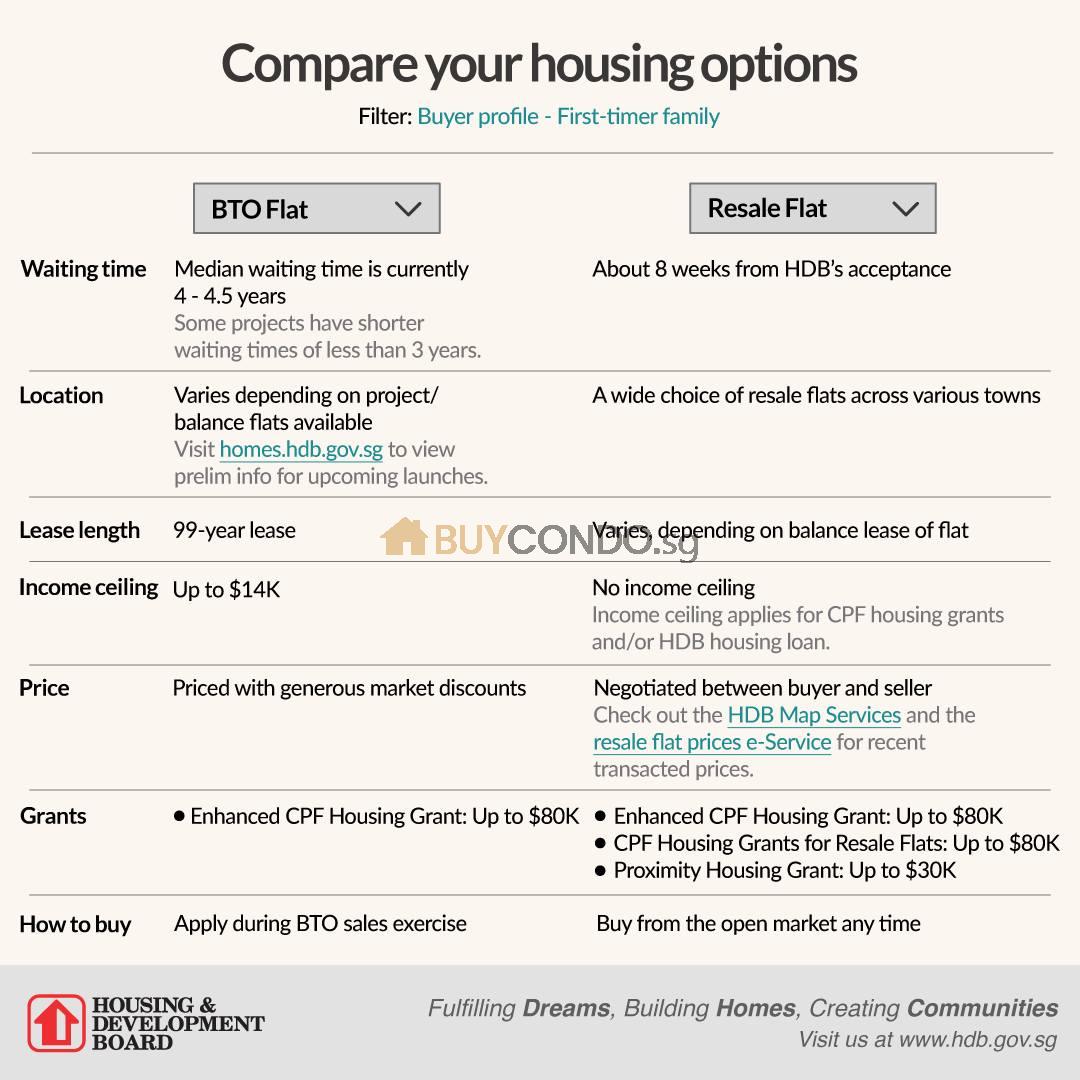The post Using a Friend or Relative as Your Property Agent appeared first on Wing Tai Holdings Singapore.
]]>
For Myself I don’t have good experiences with working with my past experiences with my friends.
Case Study:
I remembered when I come into the industry in 2009, my friend supported me and decides to offer a HDB shophouse for their Retail Business.
However instead of putting a One Month Goodfaith Deposit, my friend suggested to place a $1 as good-faith deposit. It was rejected by the landlord during that, and he informed my friend that was not serious about it. Some arguments took place and no longer in talking terms. Given that the same scenario has happened now, I will know how to handle my friend. Experience does helps.
Key Takeaways:
- Using a friend as your property agent can provide a foundation of trust and emotional ease.
- However, there may be uncertain expertise and market knowledge to consider.
- It’s crucial to evaluate your friend’s professional competence and ability to maintain objectivity.
- Biases and potential conflicts may challenge personal relationships during the transaction.
- Understanding the scope of a property agent’s role is essential.
The Comfort of Trust in Real Estate Transactions
Establishing trust with a property agent is crucial when navigating the complex world of real estate. Trust forms the foundation of a successful buyer-agent relationship, providing the comfort and assurance needed to make informed decisions throughout the transaction. While working with a professional agent is a common choice, using a friend as your property agent can offer added benefits.
Establishing trust with a property agent
Trust is a vital component in any real estate transaction. When using a friend as your property agent, you already have an existing level of trust, which can set a strong foundation for the process. The established bond allows for open communication, honest discussions, and a mutual understanding of your preferences and goals. This trust can create a sense of security, ensuring your friend-agent has your best interests at heart.
The emotional ease of working with someone familiar
One advantage of using a friend as your property agent is the emotional ease that comes with working with someone you already know and are familiar with. Your friend-agent has insights into your personality, lifestyle, and what you’re looking for in a property. This familiarity can lead to better understanding and decision-making, streamlining the process and reducing stress. The emotional ease of working with a friend can make the real estate journey more enjoyable and comfortable.
| Benefits of Trust in Real Estate Transactions |
|---|
| Establishes a strong foundation for the buyer-agent relationship |
| Encourages open communication and honest discussions |
| Provides a sense of security and mutual understanding |
| Streamlines the real estate process and reduces stress |
Uncertain Expertise and Market Knowledge
While using a friend as your property agent may have its advantages, it’s important to consider the potential drawback of uncertain expertise and market knowledge. While your friend may be familiar with real estate, they may not possess the same level of expertise and market knowledge as a professional agent. This could result in missed opportunities and inadequate guidance throughout the process.
When navigating the complex real estate market, it is crucial to have a deep understanding of market trends, property values, and negotiation strategies. Professional agents often have years of experience and access to extensive market data, giving them a competitive edge in representing your interests.
By choosing a friend as your property agent, there is a risk of relying on someone with limited knowledge of the current market conditions. While their intentions may be genuine, their uncertain expertise could negatively impact your buying or selling experience.
When making important financial decisions, it’s essential to have accurate information and guidance from a knowledgeable expert who can help you navigate the complexities of the real estate market. Professional agents bring invaluable market insights, keeping you informed about current trends, pricing dynamics, and potential investment opportunities.
Additionally, professional agents have access to industry resources and networks that can facilitate a smoother transaction. They can connect you with reliable professionals, such as lawyers, mortgage brokers, and inspectors, ensuring all aspects of the process are handled efficiently and effectively.
Before entrusting your real estate transaction to a friend, carefully consider their qualifications and experience in the industry. Assess their ability to provide accurate market analyses, negotiate favorable terms, and guide you through the legal complexities of property transactions.
Remember, while it may be tempting to work with someone you know and trust, the expertise and market knowledge of a professional agent are invaluable in the pursuit of a successful real estate transaction.
Should I Use a Friend as my Property Agent
Before deciding whether to use a friend as your property agent, it’s essential to evaluate their professional competence.
Evaluating the professional competence of a friend
Consider factors such as their knowledge of the local market, negotiation skills, and track record of successful transactions. A competent property agent should have a deep understanding of the market trends and be able to navigate complex negotiations to ensure you get the best deal. Look for evidence of their expertise and past achievements to determine if they are equipped to handle your real estate needs.
How personal relationships might cloud judgment
While using a friend as your property agent offers the comfort of working with someone familiar, it’s important to recognize that personal relationships can sometimes cloud judgment. Emotions and biases may influence decision-making, potentially compromising your best interests in the process. Evaluate whether your friend can maintain objectivity and prioritize your needs above personal considerations. Open communication and clear boundaries can help maintain a professional relationship and ensure that the real estate transaction is handled with the utmost integrity.

Navigating Biases in the Home Selling Process
When using a friend as your property agent, one of the challenges you may encounter is navigating biases in the home selling process. Friends often hesitate to provide candid feedback, fearing that it may strain the relationship. However, it’s crucial to receive honest and objective feedback to make informed decisions in real estate.
The importance of objectivity cannot be overstated in the real estate industry. Your friend may have personal biases or preferences that can influence their advice. To ensure you receive unbiased guidance throughout the home selling process, it’s essential to prioritize the objectivity of your agent.
Objectivity allows for a clear-eyed evaluation of your property’s strengths and weaknesses, pricing strategy, and marketing approach. It helps you see beyond personal attachments and make decisions that are based on market realities. An objective agent can provide valuable insights on staging, potential renovations, or adjustments to maximize your property’s appeal to potential buyers.
By prioritizing objectivity, you can navigate the biases that may arise when using a friend as your property agent. Remember that while their intentions may be well-meaning, it’s crucial to have an agent who can provide impartial advice and recommendations based on market trends and buyer preferences.
Potential Risk to Personal Relationships
When considering using a friend as your property agent, it’s crucial to acknowledge the potential risk it poses to personal relationships. While the idea of working with someone familiar may seem appealing, it’s essential to recognize the potential complications that can arise in a dual-role relationship.
When Business Complications Challenge Friendships
Utilizing a friend as your property agent introduces a layer of business complexity to the friendship. The dynamics of a business relationship can sometimes clash with the expectations and dynamics of a personal friendship. Disagreements or differences in opinion regarding the real estate transaction can strain the friendship and lead to conflicts.
Moreover, disagreements that arise during the property transaction process have the potential to sour the friendship, creating challenges in both the business and personal relationship. For example, if there are differences in opinion on the property’s value or negotiation strategy, it could lead to friction between the friend-agent and the client, causing strain on their personal relationship. These potential conflicts of interest underline the importance of establishing clear boundaries and expectations when engaging a friend as a property agent to minimize the risk of misunderstandings and maintain professionalism throughout the real estate transaction. It is crucial to ensure that both parties are aligned on the professional expectations and responsibilities to safeguard the integrity of the friendship and the success of the property transaction.
Impact on Friendship
Moreover, disagreements related to the property transaction, such as differences in opinions on property choices or negotiation strategies, can create tension between friends. The emotional and financial stakes involved in real estate transactions can escalate conflicts, leading to strained interactions and communication patterns that spill over into personal relationships. These professional disagreements have the potential to impact the trust and mutual respect in the friendship, underscoring the need for careful consideration when opting to involve a friend as your property agent.
Additionally, testimonies from individuals who have engaged friends as their property agents revealed the potential strains on personal relationships. Many emphasized the challenges of managing professional disagreements and conflicts of interest, which subsequently impacted their friendships outside the real estate context. This highlights the need for individuals to carefully assess the potential impact of real estate transactions on their friendships when considering a friend as their property agent.
How to Manage Conflict in Dual-Role Relationships
Managing conflict is essential to preserve both the business and personal aspects of your relationship. To navigate conflicts effectively, open communication is key. Establishing clear boundaries and expectations from the beginning can help mitigate potential conflicts.
Conflicts may arise during the real estate transaction process, but you can handle them effectively by openly discussing your concerns, listening to each other’s perspectives, and finding compromises that satisfy both parties. It’s important to prioritize maintaining a healthy friendship while managing the complexities of a dual-role relationship.
To summarize, using a friend as your property agent can potentially risk personal relationships. By acknowledging and addressing the challenges that business complications can bring and by actively managing conflicts, it is possible to maintain a healthy balance between business and friendship.
Understanding the Scope of a Property Agent’s Role
Before deciding to use a friend as your property agent, it’s crucial to understand the scope of their role. A property agent is responsible for various tasks such as property search, negotiations, and documentation. It’s important to discuss expectations and ensure your friend has the necessary skills and resources to fulfill their role effectively.
When you work with a property agent, they act as your guide throughout the entire real estate process. They assist you in finding suitable properties that meet your criteria, negotiate on your behalf to secure the best deal, and handle all the necessary paperwork and documentation to ensure a smooth transaction.
An experienced property agent has in-depth knowledge of the local market trends, pricing, and legal requirements. They can provide valuable insights and advice to help you make informed decisions. Their expertise extends beyond just finding properties; they also understand the intricacies of the buying or selling process, including financing options, property inspections, and contract terms.
Having a clear understanding of your friend’s capabilities and limitations as a property agent is essential. While they may have good intentions, it’s important to assess whether they have the necessary qualifications and resources to handle the complexities of the real estate market.
Remember, the role of a property agent is multifaceted, and it requires a level of expertise and experience to navigate successfully. Evaluating your friend’s skills and ensuring they can fulfill their role effectively will help you make an informed decision about whether using a friend as your property agent is the right choice for you.
The Role of a Full-Time Agent
When you engage a full-time agent, you benefit from their undivided attention and commitment to your property transaction. Unlike a friend who may have other personal and professional obligations, a full-time agent is dedicated to staying updated with market trends, legal regulations, and property evaluation techniques. This commitment ensures that you receive well-informed guidance and support throughout the entire process, from listing your property to closing the deal.
Moreover, a full-time agent’s accessibility is a crucial advantage. They are readily available to promptly address your concerns, respond to inquiries, and conduct property viewings, ensuring that your property receives the attention it deserves. This level of availability is often challenging to replicate when working with a friend, who may have limited time due to their existing commitments.
For example, a full-time agent can proactively conduct market research to determine the optimal selling price for your property, leveraging their expertise to ensure that you receive the best possible value. On the other hand, a friend who dabbles in real estate part-time may lack the resources and time to conduct comprehensive market analyses, potentially leading to suboptimal pricing strategies. Therefore, the decision to engage a full-time agent is a critical factor in safeguarding the success and efficiency of your real estate transaction.
Influence of Commission on Performance
When choosing a friend as your property agent, it’s crucial to consider the influence of commission on their performance. Selecting an agent solely based on low commission may compromise their incentive to effectively market and advertise the property. For instance, if your friend-agent agrees to a significantly lower commission than the standard rate, they might be inclined to prioritize other properties with higher commission rates, thereby reducing their motivation to dedicate time and effort to effectively promote your property.
A focus on low commission can impact the agent’s motivation and commitment to securing the best deal for the client. This could manifest in reduced enthusiasm in negotiations, limited resources allocated to marketing efforts, and a lack of proactive engagement with potential buyers. Therefore, it’s essential to evaluate your friend’s dedication to achieving the best outcome for you as a client, beyond the commission rate they agree upon. Always ensure that your friend-agent’s commitment to your property’s success is not overshadowed by the commission negotiations, as this can significantly influence the overall performance and outcome of the property transaction.
Incorporating information from real estate experts, it was emphasized that the commission structure significantly impacts an agent’s motivation and commitment to effectively representing their clients. The experts highlighted that selecting an agent solely based on low commission may compromise their incentive to diligently market and advocate for the property, potentially affecting the overall success of the real estate transaction. This underscores the importance of evaluating the friend-agent’s commitment and performance incentives when considering them as a property representative.

Benefits of Using a Friend as a Property Agent
Despite the potential drawbacks, there are also benefits to using a friend as your property agent. A friend may have a deep understanding of your preferences and needs, allowing for a more personalized approach to the real estate process. Trust and open communication can also enhance the overall experience.
When you work with a friend as your property agent, they have insider knowledge of your preferences and specific requirements. This familiarity can lead to a tailored search process, ensuring that you see properties that align with your needs. They may also provide valuable insights and recommendations based on their understanding of your taste and lifestyle.
In addition, the existing trust between you and your friend can create a comfortable and transparent environment for decision-making. You may feel more at ease discussing your concerns and expectations with someone you trust, leading to open and honest communication throughout the process. When challenges arise, your friend may be better equipped to handle them, as they have knowledge of your personal circumstances and priorities.
Furthermore, the friendship aspect of the relationship can add an element of emotional support during what can be a stressful time. Your friend may be more attuned to your emotional needs and provide reassurance throughout the buying or selling process.
However, it’s essential to balance the benefits with the potential risks. Evaluate whether your friend has the necessary skills and expertise to handle the complexities of the real estate market. Discuss their previous experience in transactions similar to yours and how they plan to navigate any hurdles that may arise.
Ultimately, using a friend as your property agent can be a positive and rewarding experience when approached with caution and careful consideration.
The Line Between Professional Advice and Personal Opinions
When working with a friend as your property agent, it’s crucial to differentiate between professional advice and personal opinions. While friends may offer suggestions based on their personal preferences and experiences, it’s important to ensure that professional standards are met to make informed decisions. Striking a balance between friendly input and expert advice is essential for a successful real estate transaction.
Deciphering Solid Advice from Friendly Suggestions
When receiving advice from a friend who is acting as your property agent, it’s important to consider the source and the basis for their recommendations. Assess whether their suggestions are rooted in professional knowledge and expertise or if they are solely based on personal opinions. Professional advice takes into account market trends, legal requirements, and industry standards, providing you with objective recommendations that align with your specific goals.
Deciphering solid advice from friendly suggestions involves critically evaluating the advice against your own requirements and preferences. Consider the reputation and track record of your friend as an agent, as this can serve as an indicator of their ability to provide reliable advice. Taking into account the market conditions and consulting with other industry professionals can also help you make informed decisions.
Ensuring Professional Standards Are Met
While working with a friend as your property agent, it’s essential to ensure that professional standards are met. This means that your friend should adhere to the same level of professionalism, integrity, and ethical conduct expected of any licensed property agent.
Professional standards encompass various aspects of the real estate transaction, including proper documentation, accurate property valuation, effective negotiation skills, and compliance with legal and regulatory requirements. It’s important to have clear communication with your friend-agent about your expectations and to ensure that they are committed to upholding professional standards throughout the entire process.
By differentiating between professional advice and personal opinions, you can navigate the real estate journey more confidently, considering both the insights of your friend-agent and the expertise of a professional. Striking this balance will help you make informed decisions that align with your goals and ensure that your real estate transaction is conducted in a professional and ethical manner.
Consequences of Financial Disclosure Amongst Friends
When considering using a friend as your property agent, it is important to be aware of the consequences of financial disclosure. Real estate transactions involve the sharing of personal financial details, and it is crucial to prioritize the privacy and security of this information.
Financial disclosure can reveal sensitive information that you may not want widely known amongst your friends or acquaintances. It is essential to assess the trustworthiness of your friend-turned-agent and determine whether they can handle this information with utmost discretion.
Setting boundaries with your friend-agent is crucial to maintaining a professional relationship and safeguarding your confidential financial details. Open and clear communication is key to ensuring that both parties understand the importance of privacy and confidentiality. This includes discussing and agreeing upon the level of detail that will be disclosed and how it will be handled.
By setting boundaries from the start, you can establish a foundation of trust and respect in the handling of your financial information. This will not only protect your privacy but also preserve the integrity of your friendship throughout the real estate transaction.
Choosing the Right Property Agent: Qualifications Over Connections
When it comes to finding a property agent, it can be tempting to rely on personal connections. However, choosing an agent based solely on your relationship with them may not always be the best course of action. Instead, it’s essential to prioritize qualifications and experience when selecting a property agent to ensure a successful and smooth real estate transaction.
Assessing Agent Qualifications and Experience
When evaluating potential property agents, take the time to delve into their qualifications and experience. Look for agents who have a strong track record in the industry, with proven success in buying or selling properties similar to yours. Assess their knowledge of the local market, understanding of current market trends, and ability to negotiate effectively.
Remember, a property agent’s qualifications and experience can directly impact the outcome of your transaction. It’s important to establish confidence in their abilities from the start.
Finding a Trustworthy Property Agent in Singapore
In Singapore’s real estate market, finding a trustworthy property agent is paramount. Trust is built on transparency, integrity, and open communication. Look for agents who prioritize your best interests, provide honest advice, and maintain a high level of professionalism throughout the process.
Consider seeking recommendations from friends, family, or colleagues who have recently worked with reliable property agents. Additionally, online reviews and industry accolades can provide valuable insights into an agent’s reputation and trustworthiness.
By focusing on agent qualifications and finding someone you can trust, you can enhance your chances of a successful real estate transaction. Remember, the right property agent will not only guide you through the process but also protect your interests and ensure you make informed decisions.

Conclusion Using a Friend or Relative as Your Property Agent
After weighing the pros and cons, using a friend as your property agent can be a tempting option. The comfort of trust and familiarity can create a strong foundation for the real estate transaction. However, it’s crucial to be aware of the potential risks involved. Uncertain expertise and market knowledge could result in missed opportunities or inadequate guidance. Biases in the home selling process may hinder receiving candid feedback, which is crucial for making informed decisions.
Furthermore, personal relationships can be at risk when business complications arise. It’s essential to evaluate your friend’s professional competence, ensuring they have the necessary qualifications and experience to handle the complexities of a real estate transaction. Striking a balance between personal opinions and professional advice is also important to ensure the best outcome.
When considering using a friend as your property agent, it’s important to carefully evaluate the overall dynamics of your relationship. Setting clear boundaries and maintaining open communication can help manage potential conflicts. Ultimately, the decision should be based on a thorough assessment of your friend’s abilities.
FAQ
Should I use a friend as my property agent?
Using a friend as your property agent can have benefits, such as the comfort of trust. However, there are also potential drawbacks to consider, such as uncertain expertise and the impact on personal relationships. It’s important to carefully evaluate your friend’s professional competence before making a decision.
How can I establish trust with a property agent?
Trust can be established by working with someone familiar and already known to you, such as a friend. This can provide a strong foundation for the real estate transaction and make the process feel more comfortable and seamless.
What are the potential pitfalls of using a friend as my property agent?
One potential pitfall is uncertain expertise and market knowledge. While your friend may be familiar with real estate, they may not have the same level of qualifications and experience as a professional agent. It’s important to assess their professional competence before proceeding.
How might personal relationships cloud judgment when using a friend as a property agent?
Personal relationships have the potential to influence decision-making, as emotions and biases may come into play. It’s important to assess whether your friend can maintain objectivity and prioritize your best interests in the real estate transaction.
How can I navigate biases in the home selling process when working with a friend?
Friends may hesitate to provide candid feedback for fear of damaging the relationship. However, it’s important to prioritize receiving honest and objective feedback in order to make informed decisions. Ensure your friend can maintain objectivity throughout the process.
What potential risks are there to personal relationships when using a friend as my property agent?
Business complications can strain friendships, especially when conflicts arise during the real estate transaction. Open communication and setting boundaries can help manage conflict and maintain a healthy relationship.
What does the role of a property agent entail?
A property agent is responsible for various tasks, including property search, negotiations, and documentation. It’s important to discuss expectations with your friend-turned-agent and ensure they have the necessary skills to fulfill these responsibilities effectively.
What are the benefits of using a friend as my property agent?
Using a friend as your property agent can offer a more personalized approach to the real estate process, as they may have a deep understanding of your preferences and needs. Trust and open communication can also enhance the overall experience.
How can I differentiate between professional advice and personal opinions when working with a friend as my property agent?
While friends may offer suggestions based on personal preferences, it’s crucial to ensure that professional standards are met. Striking a balance between friendly input and expert advice is important for a successful real estate transaction.
What are the consequences of financial disclosure among friends when using a friend as my property agent?
It’s essential to consider the privacy of your personal financial details and ensure that boundaries are set. Clear communication and mutual understanding are crucial to maintain trust and protect sensitive information.
How can I choose the right property agent?
When choosing a property agent, qualifications should be prioritized over connections. Assessing an agent’s qualifications, such as their experience, track record, and understanding of the local market, is crucial in making an informed decision. It’s also important to find a trustworthy agent.
The post Using a Friend or Relative as Your Property Agent appeared first on Wing Tai Holdings Singapore.
]]>The post Rental Yield vs Capital Gains appeared first on Wing Tai Holdings Singapore.
]]>Understanding Rental Yield and Capital Gains in Property Investment: Exploring the importance of both rental yield and capital gains, their differences, pros and cons, and the benefits of achieving a balanced approach in real estate investment.
Understanding Rental Yield
Rental yield, a fundamental metric in real estate investment, offers valuable insights into the potential return on investment by representing the ratio of the annual rental income to the cost of the property. For instance, consider a property that generates an annual rental income of $50,000 and was purchased for $1,000,000. The rental yield for this property would be calculated as ($50,000 / $1,000,000) * 100, resulting in a rental yield of 5%. This calculation illustrates the significance of rental yield in assessing the income-generating potential of a property in relation to its acquisition cost.
Net rental yield, another crucial aspect of rental yield, measures the rental income against the total costs of the property, including mortgage interest rates, maintenance fees, and stamp duties. For example, if a property incurs $10,000 in annual expenses, the net rental yield can be calculated by deducting these expenses from the annual rental income and then dividing the resulting amount by the total cost of the property. Understanding net rental yield enables investors to gain a comprehensive view of the property’s performance, factoring in all associated costs to determine the actual income generated.
It is important to recognize that rental yield is not the sole aspect of property investment and should be considered in the context of other crucial details, such as rentability, capital gains, foreign influx, and the impact of upcoming supply. For instance, foreign influx and the impact of upcoming supply can significantly affect rental yield, highlighting the need to consider multiple factors in property investment decisions. Therefore, while rental yield is a vital metric, it should be evaluated alongside other essential aspects to make well-informed and strategic investment decisions.
Understanding Capital Gains
Capital gains, a pivotal component of real estate investment, signify the increase in the value of a property or investment over time, presenting an alternative avenue for generating returns aside from rental income. An example of capital gains in action can be observed in a property that was purchased for $1,000,000 and later sold for $1,200,000, resulting in a capital gain of $200,000. This gain showcases the potential for wealth accumulation through the appreciation of property values over time.
Capital gains play a significant role in offsetting low rental yields, as the increase in the property’s value can compensate for lower rental income. For instance, in an instance where a property experiences a modest rental yield due to market conditions, the potential for capital gains can serve as a strategic advantage, enabling investors to realize profits through the appreciation of the property’s value. Understanding the dynamics of capital gains is essential for investors to leverage the long-term wealth accumulation potential offered by property appreciation.
Moreover, capital growth allows an investor to leverage an asset to expand their property portfolio, underscoring its potential for long-term wealth creation and financial growth. For example, an investor who strategically acquires properties in appreciating markets and benefits from substantial capital growth can utilize the accrued wealth to further expand their property portfolio, amplifying their overall investment potential.
 Differences between Rental Yield and Capital Gains
Differences between Rental Yield and Capital Gains
The distinction between rental yield and capital gains lies in their focus and purpose within real estate investment. Rental yield primarily centers on the annual rental income and its ratio to the property cost, providing insights into the property’s cash flow potential. In contrast, capital gains emphasize the increase in property value over time, offering potential profits upon the property’s eventual sale. Understanding these differences is essential for investors to leverage both metrics effectively in their investment strategies.
Furthermore, while rental yield is more about cash flow, providing regular income, capital gains focus on the asset’s value appreciation, offering potential profits upon sale. This distinction highlights the complementary nature of these metrics, as rental yield contributes to regular income generation, while capital gains offer the potential for wealth accumulation through property appreciation. By recognizing the unique advantages of each, investors can tailor their investment strategies to optimize their overall returns.
Both rental yield and capital gains are important components of property investment, each serving different purposes and offering distinct advantages. Therefore, investors should recognize the value of integrating both metrics into their investment strategies to capitalize on the diverse benefits they offer.
Pros and Cons of Focusing on Rental Yield
Focusing on rental yield can provide a steady stream of income, which is attractive for investors seeking regular cash flow from their properties. For example, an investor who prioritizes properties with high rental yields may benefit from a consistent income stream that contributes to their overall financial stability. However, there are risks associated with solely focusing on rental yield, such as potential drawbacks in buying properties solely for high yields without considering other critical factors like property condition and location. This scenario emphasizes the importance of maintaining a balanced approach and considering various aspects of a property’s potential rather than solely prioritizing rental yield.
Extreme decisions, such as purchasing very small or aging properties for high yields, can be risky for new investors, highlighting the potential downsides of an overly narrow focus on rental yield. Therefore, while rental yield is an essential consideration, investors should exercise prudence and consider the broader context of a property’s investment potential to mitigate risks and optimize their returns.
Pros and Cons of Focusing on Capital Gains
Focusing on capital gains offers the potential for substantial profits in the long run, especially in appreciating property markets, presenting an opportunity for wealth accumulation. An example of this can be observed in a scenario where an investor strategically acquires properties in a rapidly appreciating market and realizes significant profits upon the sale of these properties due to their increased value. However, relying solely on capital gains may pose challenges in generating regular income, particularly for investors depending on property investments for cash flow. It is crucial for investors to strike a balance between the potential for long-term wealth accumulation and the need for regular income to meet their financial objectives.
Capital growth can earn exponentially more than rental income in the long run, showcasing its potential for significant wealth creation over time. By recognizing the distinct advantages and limitations of focusing on capital gains, investors can strategically integrate this metric into their investment approach to optimize their overall returns.
 Balancing Rental Yield and Capital Gains
Balancing Rental Yield and Capital Gains
Achieving a balance between rental yield and capital gains can offer the benefits of both regular income and long-term wealth accumulation, providing a diversified and robust approach to property investment. For instance, an investor who strategically acquires properties with a balance of rental yield and potential for capital gains can benefit from a consistent income stream alongside the potential for wealth accumulation through property appreciation. This balanced approach fosters a comprehensive investment strategy that aligns with an investor’s financial goals and risk tolerance.
A well-chosen property has the potential to earn rental income and achieve capital growth, emphasizing the advantages of pursuing a balanced strategy. By striking a balance between rental yield and capital gains, investors can mitigate the risks associated with relying solely on one aspect of property investment and capitalize on the unique advantages offered by both metrics. This balanced approach promotes a comprehensive investment strategy that aligns with an investor’s financial objectives and risk tolerance.
Factors to Consider when Choosing between Rental Yield and Capital Gains
When deciding between rental yield and capital gains, investors should consider several crucial factors to make informed investment decisions. Evaluating rentability, high vacancies, turnover rates, surrounding developments, development size, and the overall appreciation of the property is essential for gaining a comprehensive understanding of its investment potential. For instance, an investor considering a property in a rapidly growing area with high potential for appreciation may prioritize capital gains, while another investor focusing on generating consistent income may prioritize rental yield.
Aligning investment strategy with personal financial goals and risk tolerance is crucial, as different investors may prioritize regular income, long-term wealth accumulation, or a balanced approach based on their unique circumstances. Therefore, understanding individual investment objectives and risk appetite is essential for tailoring an investment strategy that aligns with an investor’s specific goals and preferences.
Consulting a trusted property professional is indispensable for sound property investment advice, as experts can provide valuable insights tailored to individual investment objectives and market conditions. By leveraging the expertise of professionals in the real estate industry, investors can gain a deeper understanding of the market dynamics and make well-informed decisions that align with their investment goals and risk appetite.
Conclusion : Rental Yield vs Capital Gains
In conclusion, achieving a balance between rental yield and capital gains is vital for making informed and strategic real estate investment decisions. By understanding the unique advantages and limitations of both metrics and considering various factors such as rentability, property appreciation, and market dynamics, investors can develop a comprehensive investment approach that aligns with their financial objectives and risk tolerance. It is crucial for investors to recognize the value of integrating both rental yield and capital gains into their investment strategies to optimize their overall returns and capitalize on the diverse benefits they offer.
Work with a good Property Manager in Singapore; they will be able to advise you which location has a better chance of getting good tenants and which properties are undervalued.
The post Rental Yield vs Capital Gains appeared first on Wing Tai Holdings Singapore.
]]>The post Rental Yield vs Rentability appeared first on Wing Tai Holdings Singapore.
]]>Rental Yield vs Rentability which comes first? Understanding the concepts of rental yield and rentability is crucial for making well-informed property investment decisions, as they play a vital role in predicting potential profits and assessing the overall viability of a property investment.
Rental Yield: Understanding the Concept
Rental yield is a fundamental concept in the realm of real estate investment, signifying the annual rental income as a percentage of the property’s purchase price. It provides a snapshot of a property’s potential income and is crucial for predicting the profitability of renting out the property. The calculation of rental yield can be done in two ways: gross rental yield, which does not consider costs, and net rental yield, which factors in expenses such as maintenance and vacancies. Understanding the significance of rental yield is evident in its role in enhancing the strategy for buy-to-let investments, offering valuable insights into potential profits.
For example, consider a property purchased for $500,000 that generates an annual rental income of $30,000. The gross rental yield would be 6% ($30,000 ÷ $500,000 x 100), providing an initial assessment of the property’s income potential.
When delving into the concept of rental yield, it’s essential to recognize its pivotal role in evaluating the financial performance of a potential investment property. This metric serves as a gauge for the income potential in relation to the property’s purchase price, offering valuable insights for property investors. Additionally, the distinction between gross and net rental yield underscores the importance of factoring in expenses to gain a comprehensive understanding of the property’s income-generating capabilities, further enhancing the decision-making process in real estate investments.
Rentability: Calculating and Assessing Viability
Rentability is a crucial factor in the realm of real estate investment, referring to the property’s capacity to be rented out and generate income. It involves evaluating various factors such as the property’s attractiveness in the rental market, potential tenant pools, and maintenance requirements to assess the property’s viability for generating rental income. Assessing rentability is pivotal in making informed decisions about property investments, especially in competitive real estate markets, as it provides a comprehensive view of the property’s potential in the rental landscape. Net rental yield, another significant metric, measures rental income against the total costs of the property, including mortgage interest rates and maintenance fees, further enhancing the assessment of the property’s viability for rental purposes.
In a practical scenario, a property investor considering a potential investment can utilize the concept of rentability to gain insights into the property’s attractiveness in the rental market and its potential to generate consistent income. This assessment aids in making well-informed decisions regarding property investments, aligning with the investor’s objectives and expectations.
When exploring the concept of rentability, it’s essential to emphasize its multifaceted nature and the various elements that contribute to its assessment. Factors such as the property’s location, amenities, and the overall demand in the rental market play a pivotal role in determining the property’s rentability, further highlighting the significance of this metric in the decision-making process for property investments. Additionally, the consideration of net rental yield provides a comprehensive view of the property’s financial viability, encompassing various costs and expenses associated with renting out the property.
 Rental Yield vs. Rentability: Distinguishing the Two
Rental Yield vs. Rentability: Distinguishing the Two
Rental yield and rentability are two distinct yet interconnected concepts that play pivotal roles in evaluating the financial and practical aspects of a property investment. While rental yield focuses on the returns generated from a property, rentability emphasizes the practicality and feasibility of renting out the property, taking into account factors such as potential tenant pools and market attractiveness. Both metrics are essential in evaluating the profitability and viability of a real estate investment, with rental yield providing insights into income potential and rentability addressing the property’s suitability for generating rental income. The inverse relationship between rental yield and rentability emphasizes the importance of considering both aspects when assessing a property’s investment potential.
In practical terms, the distinction between rental yield and rentability can be illustrated through a comparative analysis of two properties. Property A may exhibit a high rental yield but lower rentability due to factors such as limited demand in the rental market, while Property B may have a lower rental yield but higher rentability, indicating a consistent potential for generating rental income.
When differentiating between rental yield and rentability, it’s crucial to emphasize the nuanced nature of these metrics and their combined impact on property investments. While rental yield provides a financial perspective, rentability delves into the practical aspects of renting out a property, encompassing factors such as market demand, tenant preferences, and the property’s overall suitability for rental purposes. Understanding this distinction enables property investors to gain a comprehensive view of the investment potential and align their strategies with the property’s income-generating capabilities.
Significance of Considering Rental Yield and Rentability
Understanding rental yield and rentability is paramount for making well-informed decisions in property investment, as both metrics play a crucial role in predicting potential profits and assessing the overall feasibility of a property investment.
In the context of real estate investment, the significance of considering rental yield and rentability extends beyond financial assessments, encompassing practical considerations and long-term viability. Incorporating both metrics into the decision-making process enables property investors to gain a comprehensive understanding of the property’s income potential and its practical suitability for rental purposes, aligning with their investment objectives and strategies.
 Factors Influencing Rental Yield and Rentability
Factors Influencing Rental Yield and Rentability
Several factors such as property location, purchase price, rental demand, and maintenance costs can significantly impact rental yield and rentability, shaping the overall viability of a property investment. Property investors need to consider these factors to accurately assess their investments’ potential profitability and viability. Additionally, the influence of upcoming supply, foreign influx, and potential capital gains should also be considered alongside rental yield and rentability.
When analyzing the factors influencing rental yield and rentability, it’s crucial to recognize the dynamic nature of the real estate landscape and the multifaceted elements contributing to these metrics. Property location, for instance, plays a pivotal role in determining the property’s rentability, as areas with high demand and limited supply often exhibit higher rentability and rental yield. Additionally, considering maintenance costs and potential capital gains aligns with a comprehensive assessment of the property’s long-term viability, emphasizing the holistic approach required in evaluating rental yield and rentability.
 Risks of Solely Relying on Rental Yield
Risks of Solely Relying on Rental Yield
Relying solely on rental yield for property investment decisions can pose risks, as other factors such as rentability, capital gains, and market trends also play a significant role. It’s crucial for investors to understand the potential risks associated with a narrow focus on rental yield to make informed investment decisions. WING TAI HOLDINGS Team offer a comprehensive view of rental yield and rentability, assisting investors in mitigating risks associated with a limited focus .
In the realm of real estate investment, the risks associated with a narrow focus on rental yield underscore the importance of a balanced and comprehensive assessment of property investments. While rental yield provides valuable financial insights, considerations such as rentability, market dynamics, and long-term viability contribute to a more holistic approach in mitigating risks and aligning investments with diverse factors [1].
Predicting Potential Profits: Role of Rental Yield and Rentability
Rental yield serves as a valuable tool in predicting potential profits from renting out a property, providing insights into the property’s financial performance. On the other hand, rentability plays a crucial role in forecasting the potential tenant pool, maintenance costs, and overall viability of the property for rental purposes. Utilizing 99.co’s property data can offer valuable information on rental yield and rentability, enabling investors to make informed predictions about potential profits.
In practical terms, the role of rental yield and rentability in predicting potential profits can be exemplified through the analysis of diverse investment scenarios. A property with a high rental yield and strong rentability may indicate consistent potential profits, aligning with the investor’s objectives and long-term investment strategies. Conversely, properties with varying profiles of rental yield and rentability offer valuable insights into the income potential and practical viability, contributing to informed predictions about potential profits [2].
Case Study: Applying Rental Yield and Rentability in Property Investment
A case study illustrating rental yield and rentability in two different private property units in Singapore can provide practical examples of applying these metrics in real-world investment scenarios. It demonstrates the importance of considering all factors, including rental yield and rentability, before committing to a property purchase, offering valuable guidance for investors. Leveraging 99.co’s property insights can provide real-world examples and practical guidance for incorporating rental yield and rentability in property investment decisions, enhancing the overall investment strategy.
In the context of real estate investment, the application of rental yield and rentability in a case study offers valuable insights into the practical considerations and financial assessments involved in property investments. By analyzing diverse property units and their respective rental yield and rentability profiles, investors gain a comprehensive understanding of the real-world implications and the multifaceted nature of these metrics in investment decisions.
Conclusion: Rental Yield vs Rentability
In conclusion, understanding the concepts of rental yield and rentability is essential for making well-informed property investment decisions. Both metrics play a crucial role in predicting potential profits and assessing the overall feasibility of a property investment. Encouraging readers to explore further on Singapore Property Blog can provide comprehensive insights into rental yield and rentability for successful property investments, empowering investors with valuable resources for informed decision-making.
The post Rental Yield vs Rentability appeared first on Wing Tai Holdings Singapore.
]]>The post Legal and Financial Considerations when getting a property for your Child appeared first on Wing Tai Holdings Singapore.
]]>A comprehensive guide on the legality and considerations parents should be aware of when helping their child purchase a property in Singapore, including legal age and capacity requirements, financial considerations and tax implications, trusts as a legal mechanism, legal documents and agreements, potential risks and liabilities, estate planning and inheritance considerations, safeguarding legal interests, practical implications of setting up a trust, case studies and expert opinions, and a compelling call to action.
Legal Age and Capacity Requirements for Property Ownership
In Singapore, the legal age for property ownership is 21, and individuals below this age are legally incapable of owning property. This requirement serves as a crucial foundation for parents who are considering assisting their child in purchasing a property. For instance, if a parent intends to buy a property for their child before they reach the legal age of property ownership, they must understand that legal ownership cannot be transferred to the child until they come of age. This underscores the importance of considering the timing of the purchase in alignment with the child’s age and legal capacity to own property.
Understanding the implications of age and capacity requirements is crucial for parents when helping their child buy a property in Singapore. For example, a parent may consider a scenario where they wish to purchase a property for their 18-year-old child. In this case, the parent needs to be aware that the legal ownership of the property cannot be immediately transferred to the child until they reach the age of 21. This example highlights the significance of aligning the property purchase with the child’s legal capacity to own property, ensuring that the transaction complies with the legal requirements and safeguards the child’s interests.
Furthermore, evaluating the child’s capacity to understand and manage the property is another significant aspect that parents need to consider when facilitating a property purchase for their child. This involves assessing whether the child comprehends the responsibilities and obligations associated with property ownership, such as maintenance, financial implications, and legal rights. Parents must ensure that their child’s readiness to take on these responsibilities aligns with the decision to assist them in purchasing a property. By carefully evaluating the child’s capacity, parents can make informed decisions and take appropriate steps to support their child in navigating the legal and practical aspects of property ownership in Singapore.
Financial Considerations and Tax Implications
When it comes to helping a child purchase a property, parents need to take into account various financial considerations and tax implications. One of the key financial aspects to consider is the overall cost of buying a property. This includes evaluating the down payment required and considering potential mortgage loans, which can significantly impact the financial commitments involved in the property purchase.
Understanding the financial implications of property purchase is essential for parents. For example, a parent considering the purchase of a residential property for their child needs to evaluate the affordability of the property, factoring in the down payment and ongoing mortgage payments. This example illustrates the importance of thorough financial planning to ensure that the property purchase aligns with the parent’s financial capabilities and long-term goals for their child’s future.
Additionally, it’s crucial for parents to be aware of the tax implications associated with assisting their child in buying a property. Furthermore, parents should carefully consider the implications of the Additional Buyer’s Stamp Duty (ABSD), which can affect the overall financial outlay associated with the property purchase. Understanding these tax responsibilities and financial commitments is essential for parents as they navigate the process of helping their child acquire a property in Singapore.
For example, if a parent is considering purchasing a property for their child through a trust, they would need to evaluate the financial impact of the property acquisition, including the ongoing maintenance costs and potential rental income. Moreover, they would need to carefully consider the tax implications of any rental income generated from the property trust, ensuring compliance with relevant tax regulations. This example illustrates the importance of thorough financial planning and tax considerations when assisting a child in purchasing a property.
 Trusts as a Legal Mechanism
Trusts as a Legal Mechanism
When parents in Singapore opt to use trusts to purchase properties for their children, they establish a legal structure that differentiates between legal ownership and beneficial ownership. This means that while the parents are the legal owners of the property, the child becomes the beneficial owner, reaping potential tax benefits and protection from creditors.
For example, a parent may set up a trust to purchase a residential property for their child, where the child is designated as the beneficiary. In this scenario, the child will benefit from any income generated by the property, and the trust can offer protection from creditors or legal claims against the parent’s assets. Furthermore, using a trust can also provide an avenue for potential tax optimization, ensuring that the child receives the income from the property under favorable tax conditions.
Moreover, the establishment of a trust creates a legal framework that defines the roles and responsibilities of the settlor, trustee, and beneficiary. It delineates the conditions under which the trust may expire and specifies the powers conferred on the trustee, providing a comprehensive legal mechanism for the property acquisition process. Additionally, it’s important to note that the trust deed must be executed and the assets transferred into the trust to set up a trust over the property, highlighting the procedural and legal aspects involved in utilizing trusts for property purchase.
Furthermore, trustees have the authority to deal with the property as specified in the trust instrument, which emphasizes the legal framework that governs the management of the property for the child’s benefit. This legal mechanism demonstrates the significance of utilizing trusts to safeguard the child’s interests and provide potential financial benefits, while ensuring compliance with legal requirements and responsibilities.
 Legal Documents and Agreements
Legal Documents and Agreements
One crucial document involved in this process is the trust deed, which outlines the terms and conditions of the trust arrangement. For example, the trust deed specifies the roles and responsibilities of the settlor, trustee, and beneficiary, as well as the conditions under which the trust may expire. It also delineates the powers conferred on the trustee and the provisions for the termination of the trust, providing a comprehensive legal framework for the property purchase process.
Consulting with a property lawyer is highly recommended to ensure a thorough understanding of these legal documents and agreements.
In addition to the trust deed, parents may also need to consider other legal documents and agreements, such as the transfer of property ownership, financing arrangements, and regulatory approvals, depending on the specific circumstances of the property purchase. These documents play a critical role in establishing the legal framework for the property acquisition and ensuring compliance with relevant laws and regulations.
Potential Risks and Liabilities
When parents assist their child in buying a property, there are several potential risks and liabilities that need to be carefully considered. One significant consideration is the potential legal complications that may arise, particularly in the context of divorce proceedings. For example, if the property is not managed appropriately, it can have implications on divorce settlements and the distribution of assets. This is an important aspect for parents to be aware of, as it directly impacts the long-term security of the property intended for their child.
Another crucial risk to address is the potential liabilities that may arise from the property purchase. Parents need to understand the financial and legal responsibilities associated with the property, especially if they are involved in the purchase process or if they hold the property on trust for their child. By recognizing and addressing these potential risks and liabilities, parents can take proactive steps to safeguard their and their child’s interests in the property, ensuring that the purchase is a secure and beneficial investment for the family’s future.
Moreover, parents should seek expert advice and guidance from legal professionals to navigate these potential risks and liabilities effectively. Consulting with experienced property lawyers, such as those available through Singapore Legal Advice, can provide invaluable insights and strategies for mitigating these risks, ensuring a smooth and legally sound property purchase process for the child. By addressing these potential risks and liabilities, parents can make informed decisions and take the necessary precautions to protect their child’s property investment in Singapore.
Additionally, parents should also consider the implications of unforeseen circumstances, such as divorce or financial disputes, and take appropriate measures to safeguard their legal interests. This may involve considering the potential impact of the property acquisition on divorce proceedings, which underscores the importance of documenting intentions and seeking legal counsel to mitigate any associated risks. By addressing these legal aspects comprehensively, parents can navigate the complexities of property acquisition for their child with greater confidence and legal protection.
Estate Planning and Inheritance Considerations
When parents assist their child in purchasing a property, estate planning considerations, particularly in the context of inheritance and trusts, are crucial aspects to evaluate. It is essential for parents to carefully assess how the property purchase aligns with their overall estate planning and inheritance goals for their child. For example, parents may need to determine the most effective way to structure the property ownership to align with their long-term estate planning objectives. This may involve exploring options such as setting up a trust to hold the property for the child’s benefit, ensuring that the property is managed and distributed in accordance with their intentions and the child’s best interests.
Moreover, considerations related to potential tax implications, such as the impact of property ownership on estate taxes and the distribution of assets, need to be thoroughly evaluated as part of the estate planning process. This may involve seeking specialized advice from estate planning professionals or lawyers to ensure that the property purchase aligns with the broader estate planning strategy and goals. By taking a comprehensive approach to estate planning and inheritance considerations, parents can proactively address potential challenges and ensure that the property purchase for their child is integrated into their broader wealth management and succession planning objectives.
In conclusion, parents should carefully consider how the property purchase for their child fits into their overall estate planning and inheritance goals, seeking professional advice and guidance when necessary to ensure a comprehensive and effective approach to property acquisition within the broader context of their estate planning strategy.
 Safeguarding Legal Interests
Safeguarding Legal Interests
When safeguarding legal interests in the context of helping a child purchase a property, it is essential for parents to take into account various legal considerations. Documentation of intentions in writing and the drafting of a will are fundamental steps to ensure clear directives for the ownership and management of the property. For example, specifying in the will how the property should be managed and distributed can provide clarity and prevent potential disputes among beneficiaries.
Moreover, seeking legal advice from experts, such as those available through Singapore Legal Advice, can play a crucial role in ensuring that parents’ legal interests are properly safeguarded. Legal professionals can provide guidance on the intricacies of property ownership, trust establishment, and potential estate planning implications, offering tailored advice to address the specific needs of the parents and their child. By proactively engaging with legal experts, parents can gain a thorough understanding of their legal rights and responsibilities, which is particularly important in the case of property acquisition for their child.
Furthermore, parents should also consider the implications of unforeseen circumstances, such as divorce or financial disputes, and take appropriate measures to safeguard their legal interests. This may involve considering the potential impact of the property acquisition on divorce proceedings, which underscores the importance of documenting intentions and seeking legal counsel to mitigate any associated risks. By addressing these legal aspects comprehensively, parents can navigate the complexities of property acquisition for their child with greater confidence and legal protection.
Practical Implications of Setting Up a Trust
When parents consider setting up a trust to facilitate their child’s property purchase, various practical implications come into play. Firstly, financing the property purchase becomes a crucial consideration. Parents need to evaluate the financial commitments involved, including the initial cost, potential mortgage loans, and ongoing expenses related to property maintenance and management. For example, if a parent decides to establish a trust to purchase a private property for their child, they must carefully assess the financial resources required to ensure sustainable ownership and management of the property.
Moreover, the implications on the beneficiary, in this case, the child, need to be thoroughly examined. It’s essential for parents to envision how the property ownership will impact the child’s financial future and overall well-being. For instance, understanding the potential tax liabilities and benefits for the child arising from the trust arrangement is a critical aspect that should be carefully deliberated. This includes considering the tax implications of the income generated from the property and the impact of the Additional Buyer’s Stamp Duty (ABSD) on the child’s future property transactions in Singapore.
Additionally, parents should consider the practical implications of managing the trust property, including the responsibilities and potential challenges associated with the trustee’s role. This involves ensuring that the property is effectively managed for the child’s benefit, addressing maintenance and contractual obligations, and making decisions that align with the child’s best interests. By thoroughly considering the practical implications of setting up a trust, parents can ensure that the decision to facilitate their child’s property purchase is well-informed and aligned with their child’s long-term financial security and well-being.
Case Studies and Expert Opinions :Legal and Financial Considerations when getting a property for your Child
One case study involves a parent who purchased a property for their child through a trust in Singapore. The parent acted as the trustee, managing the property for the child’s benefit until the child reached the legal age of ownership at 21. This scenario demonstrates the legal mechanism of using trusts to facilitate property ownership for minors, highlighting the distinction between legal and beneficial ownership. It also showcases the potential advantages of setting up a trust, such as protection from creditors and potential tax benefits for the child.
Another case study involves a family navigating divorce proceedings, where the parents had contributed to the purchase of a property for their child. The legal and financial implications of such contributions in the context of divorce settlements underscore the importance of safeguarding legal interests and documenting intentions when assisting a child in property ownership. This real-life example emphasizes the need for proactive legal measures to protect both the parent’s and child’s interests in the property, shedding light on potential risks and liabilities involved in these scenarios.
Furthermore, expert opinions from property lawyers can provide tailored guidance based on individual circumstances. For instance, a property lawyer may offer insights on setting up a trust for a child’s benefit, addressing practical implications and considerations such as financing the property purchase, trust termination conditions, and future home loan eligibility. These expert opinions contribute to a nuanced understanding of the legal complexities and financial considerations associated with helping a child purchase a property in Singapore, empowering parents to make well-informed decisions.
In conclusion, the legal, financial, and practical aspects of helping a child purchase a property in Singapore are complex and require thorough understanding. It is crucial for parents to carefully consider the legal age and capacity requirements for property ownership when assisting their child in buying a property. The legal age for property ownership in Singapore is 21, and individuals below this age are legally incapable of owning property. A pertinent example to consider is when parents need to evaluate their child’s capacity to understand and manage the property before assisting in the purchase. Understanding these requirements is essential to ensure that the child is legally capable of owning the property and managing it effectively.
Moreover, parents should also be mindful of the financial considerations and tax implications associated with helping their child purchase a property. This includes carefully evaluating the cost of buying a property, down payments, potential mortgage loans, and tax implications for income from the property and the Additional Buyer’s Stamp Duty (ABSD). For instance, parents need to be aware of the financial commitments and tax responsibilities to make informed decisions when assisting their child in a property purchase. Understanding these considerations is vital to ensure that the financial aspects are managed effectively, and potential tax implications are addressed appropriately.
Given the complexities involved, it is imperative for parents to explore further details and expert guidance on the legal aspects of property purchase. This valuable resource can provide practical perspectives, expert opinions, and case studies to help parents make well-informed decisions and safeguard their legal interests effectively.
The post Legal and Financial Considerations when getting a property for your Child appeared first on Wing Tai Holdings Singapore.
]]>The post Negotiation Essentials for Property Buyers appeared first on Wing Tai Holdings Singapore.
]]>This article provides essential negotiation tactics for property buyers, including understanding property value, avoiding certain tactics during property visits, handling personal information, making a reasonable offer, navigating sensitive topics, the role of real estate agents, key considerations before buying a property, and the art of negotiation in property buying.
Understanding Property Value
Before embarking on the journey of property buying, it is paramount to have a clear understanding of the property’s value. This knowledge forms the basis of any negotiation and helps establish a realistic price range. Tools with Real time Information can assist to provide an Estimating the value of a property. These apps analyze factors such as location, age, size, and comparable listings to comprehensively evaluate the property’s worth.
Additionally, gaining insights into local market prices is an integral part of informed negotiation. Understanding the local market dynamics helps provide a broader perspective on property prices in the area, enabling buyers to gauge if the property’s price is competitive or inflated. For instance, if a property in less desirable area is priced similarly to properties in a prime location, it could indicate that the property is overpriced. Having this knowledge not only helps buyers make sound decisions but also strengthens their bargaining position.
Tactics to Avoid During Property Visits
Property visits offer a unique opportunity to assess a property firsthand. However, some tactics could potentially hinder the negotiation process if not avoided. One such tactic is asking about the asking price or the most recent offer. Inquiring about these prematurely can reveal the buyer’s position and limit their bargaining power. For instance, if during a property visit, a buyer inquires about the most recent offer, it might suggest to the seller that the buyer is willing to match or exceed that offer, thereby restricting their negotiation space.
Furthermore, buyers should refrain from making positive or negative comments about the property during the visit. These comments could influence the seller’s expectations and consequently impact the negotiation dynamics. For example, if a buyer comments on how much they love the property, the seller might assume that the buyer is willing to pay a premium to secure it, thus potentially increasing the asking price or remaining firm on a price that may be negotiable.
Handling Personal Information
While personal rapport can positively influence negotiations, sharing too much personal information with the seller can potentially backfire. If a buyer reveals that they are in a rush to buy, the seller might take advantage of this urgency to drive a hard bargain. Therefore, it is imperative to maintain discretion and refrain from divulging excessive personal details.
On the other hand, sharing financial information with a trusted real estate agent can benefit the negotiation process. Armed with knowledge about the buyer’s financial capacity, the agent can devise a strategic negotiation approach that aligns with the buyer’s budget and property aspirations. For instance, if the agent knows that the buyer has been pre-approved for a mortgage of a particular amount, they can steer the negotiation towards a price that falls within this range, thereby ensuring that the buyer does not overextend themselves financially.
Making a Reasonable Offer
Making a reasonable offer for a property is an art that requires preparation and foresight. This includes conducting comprehensive research on the property, understanding its comparative market analysis, and evaluating its condition and potential for appreciation. For instance, if a property has recently had major renovations, this could increase its value and justify a higher offer.
Preparation also involves being ready to present a confident yet reasonable offer. This not only demonstrates to the seller that the buyer is serious but also positions the buyer favorably in the negotiation process. A confident offer, backed by sound research and understanding of the property’s value, sends a clear message to the seller that the buyer is knowledgeable and prepared, which can influence the seller’s perception and response.
Navigating Sensitive Topics
Sensitive subjects are an inevitable part of property buying. School preferences, for instance, can significantly influence a buyer’s decision. It is crucial to approach such topics with tact and discretion. For example, if a property falls within the catchment area of a highly sought-after school, it might command a premium. As a buyer, recognizing this factor while also considering the property’s attributes and value can help make a balanced decision.
During negotiations, it is advisable to keep personal information unrelated to the sale or purchase discreet. This ensures that the focus remains on the property and its negotiation dynamics. For instance, buyers should avoid making statements about their family size or lifestyle that could potentially be used by the seller to inflate the price or determine the buyer’s urgency to purchase.
The Role of Real Estate Agents

A skilled and experienced real estate agent can be a valuable ally in property negotiations. They possess the expertise and market knowledge to gather vital information from potential buyers during viewings, which can confer a competitive advantage in the negotiation process. For example, an agent might pick up on subtle cues about a buyer’s interest level in the property, which can help in fine-tuning the negotiation strategy.
Moreover, a good agent can provide guidance and insights that can help buyers navigate the complexities of property negotiations. They can help buyers understand the nuances of contract terms, advise on potential negotiation pitfalls, and provide objective feedback on the property. Their experience and understanding of the market dynamics can ensure buyers make well-informed decisions aligning with their property goals.
Key Considerations Before Buying a Property
Before diving into the negotiation process, it is critical for buyers to get pre-approved for a mortgage. This not only signals to sellers that they are serious and financially capable buyers but also provides clarity on their budget. For example, with pre-approval, a buyer can confidently negotiate within a specific price range, knowing that their mortgage application is likely to be approved for properties within that range.
Furthermore, conducting a thorough self-assessment and asking pertinent questions before buying a property can help buyers make informed and confident decisions. This includes understanding their financial capacity, lifestyle needs, future plans, and property preferences. By knowing what they want and within their expectations, buyers can negotiate with clarity and confidence, ensuring their property purchase aligns with their long-term goals and financial health.
The Art of Negotiation in Property Buying
Property buying negotiations are strategic, requiring professionalism, composure, and a calculated mindset. The principles of Sun Zi’s The Art of War are applicable in this context, emphasizing the importance of strategic planning, understanding the opponent, and adapting to changing circumstances. For instance, maintaining composure and not giving away too much information during viewings can be likened to the Art of War’s principle of deception, whereby revealing less can lead to a strategic advantage.
Learning to treat the negotiation process professionally, keeping emotions in check, and adopting a poker face can significantly influence the outcome. For example, by not reacting excessively to a counteroffer, a buyer can keep the seller guessing about their next move, thereby keeping the negotiation dynamics balanced and open-ended. When applied effectively, these principles can turn the art of negotiation into a strategic tool for securing the best property deal.
Conclusion

In conclusion, mastering effective negotiation tactics is indispensable for property buyers. By understanding property value, handling personal information wisely, and leveraging the expertise of real estate agents, buyers can approach negotiations strategically and confidently. Additionally, navigating sensitive topics with tact and making well-informed decisions are key to securing the desired property at a favourable price. Remember, every property purchase is a significant investment, and effective negotiation can make a substantial difference in achieving optimal value for your investment.
The post Negotiation Essentials for Property Buyers appeared first on Wing Tai Holdings Singapore.
]]>The post No 1 Buyer Concerns-Should I Buy first or Sell First? appeared first on Wing Tai Holdings Singapore.
]]>
Navigating the process of Selling and buying a house simultaneously in a competitive market can be challenging and requires careful financial planning and strategic decision-making.
No 1 Buyer Concerns-Should I Buy first or Sell First?
Key Points – No 1 Buyer Concerns-Should I Buy first or Sell First?
 Overwhelming buyer demand and low inventory are causing the housing market to move quickly, making it challenging to sell and buy simultaneously.
Overwhelming buyer demand and low inventory are causing the housing market to move quickly, making it challenging to sell and buy simultaneously. Many buyers struggle to go through the process without selling their property first, as they need the equity from their current home for the down payment on a new one.
Many buyers struggle to go through the process without selling their property first, as they need the equity from their current home for the down payment on a new one. Getting pre-approved early in the process is crucial for potential sellers who are also buyers.
Getting pre-approved early in the process is crucial for potential sellers who are also buyers. TDSR, LTV, and required down payments can all impact how much you can qualify to purchase when selling and buying a Condo simultaneously.
TDSR, LTV, and required down payments can all impact how much you can qualify to purchase when selling and buying a Condo simultaneously. Buying a Resale Condo before selling the current one can lead to financial and logistical challenges in the real estate market.
Buying a Resale Condo before selling the current one can lead to financial and logistical challenges in the real estate market. Getting your property on the market is crucial when buying a new home, as it shows serious intent to sell.
Getting your property on the market is crucial when buying a new home, as it shows serious intent to sell. In a competitive market, it’s essential to make the most substantial offer possible when buying Condo and selling your HDB at the same time.
In a competitive market, it’s essential to make the most substantial offer possible when buying Condo and selling your HDB at the same time. Selling and buying a Condo simultaneously can lead to making irrational decisions and being in a position where you’re homeless or having to make multiple moves.
Selling and buying a Condo simultaneously can lead to making irrational decisions and being in a position where you’re homeless or having to make multiple moves.

- Selling and buying a Condo simultaneously is more complicated than it seems due to the current housing market.
- Navigating the housing market to sell and buy a home simultaneously is difficult due to low supply, high demand, and the challenge of qualifying for both mortgage and down payments.
- Buying and selling a Condo simultaneously is difficult due to low supply, high demand, and the challenge of qualifying for both mortgage and down payments.
- Navigate the housing market to sell and buy a home by considering different options and important factors before putting your home on the market.
- Consider selling and renting, but be cautious, as it may leave you without a place to live if you can’t find a new property in time.
- Get pre-approved early to avoid financial issues when selling and buying a Condo simultaneously.
- Get pre-approved early in the process if you are selling and buying a house simultaneously.
- Owning a Condo and buying another can be affected by changes in TDSR, ABSD, impacting how much you can afford to purchase.
- Getting pre-approved for a mortgage before selling and buying a Condo is essential to avoid financial predicaments and ensure you can afford the next home.
- It’s essential to have your current HDB/Condo listed first and eventually tweak the expected price before buying a new home to see how the market response and it’s best to have a buyer lined up for your home before searching for a replacement.
- Many people want to buy a new property before selling their current one, but this can lead to problems, and it’s essential to consider the order of Selling and buying.
- To buy a new Condo, you may have your current one listed on the market.
- In a low-supply market, buyers are now willing to work with sellers who need to find a replacement home. This allows sellers to have their property on the market contingent upon finding a replacement home and having a buyer ready.
- Talk to a real estate agent to determine the best approach for buying and selling a Condo simultaneously, provide robust documentation, and make a firm offer without cutting corners.
- To be taken seriously as a buyer, you must provide robust documentation and make the most substantial offer possible without cutting corners or negotiating too hard when you have a property to sell.
- Be sure to sell your Condo before looking for a new one; talk to a real estate agent to determine the best approach for your specific market.
- Be a contingent seller to avoid being homeless or making irrational decisions when buying and selling a Condo simultaneously.
Contact the WING TAI HOLDINGS Team Today.
The post No 1 Buyer Concerns-Should I Buy first or Sell First? appeared first on Wing Tai Holdings Singapore.
]]>The post Meeting Buyers Needs: The Essential Role of a Real Estate Salesperson appeared first on Wing Tai Holdings Singapore.
]]>The article highlights the valuable services that real estate salespersons provide to buyers, including understanding their needs, providing accurate information, assisting with negotiations, offering local market guidance, providing exceptional customer service, assisting with paperwork and legal processes, building trustworthy relationships, and offering value-added services.
The Role of a Real Estate Salesperson in Meeting Buyer’s Needs
A real estate salesperson plays a pivotal role in addressing buyers‘ needs in many ways. One of the most critical roles involves providing accurate and up-to-date information. This information is essential for making informed decisions about property purchases. It is not merely about providing a list of available properties. The salesperson also has to offer comprehensive data about each property, including its location, price, size, condition, and any other relevant factors that can impact the buyer’s decision. For instance, a salesperson might provide a detailed report about a property’s history, including previous owners, any significant renovations or repairs, and any known issues or concerns.
Moreover, salespersons must always be ready to provide this information promptly to meet the often time-sensitive needs of buyers. This can involve leveraging various technologies and platforms to ensure that the information provided is not only accurate but also up-to-date. For example, a salesperson might use a real estate app or website that provides real-time updates on property listings, ensuring that buyers have access to the latest information on properties that match their criteria. By doing so, the salesperson can help the buyer make a timely decision, which can be a decisive factor in a competitive real estate market.
Understanding the Buyer’s Needs
Understanding the buyer’s needs is a crucial aspect of a real estate salesperson‘s role. It involves more than just knowing the buyer’s budget or preferred property type. It requires an understanding of the buyer’s lifestyle, personal preferences, and long-term goals. This understanding allows the salesperson to offer personalized solutions that align with the buyer’s unique needs and expectations. For instance, a salesperson might suggest properties with ample outdoor space to a buyer who enjoys gardening or recommend a property near a highly rated school district to a buyer with school-aged children.
Furthermore, the salesperson can add value by leveraging their unique background and expertise to provide personalized solutions. For instance, a salesperson with a background in architecture could provide valuable insights about the structural integrity or design potential of a property. Similarly, a salesperson with a deep understanding of the local real estate market could offer strategic advice about property investment opportunities. These personalized solutions not only demonstrate the salesperson’s understanding of the buyer’s needs but also highlight their unique capabilities and expertise, adding significant value to the buyer’s experience.
Providing Accurate and Up-to-Date Information
is another crucial role of a real estate salesperson. This involves leveraging various technologies and tools to ensure that buyers have access to the most current and comprehensive information about available properties. For instance, a salesperson might use real estate software to track market trends and updates, ensuring that the information provided to the buyer is always relevant and accurate. This not only demonstrates the salesperson’s commitment to providing reliable information but also enhances the buyer’s decision-making process.
Additionally, a salesperson can provide valuable insights by offering detailed analyses of each property. This could involve providing comprehensive reports about a property’s condition, its market value, and potential for appreciation, or any other factors that could impact the buyer’s decision. For example, a salesperson could provide a detailed breakdown of a property’s energy efficiency features, which could be a crucial deciding factor for a buyer with a strong interest in sustainability. By providing such thorough and detailed information, the salesperson can help the buyer make an informed decision, ensuring that they are fully aware of the potential benefits and drawbacks of each property.
Assisting with the Negotiation Process
Assisting with the negotiation process is a fundamental role of a real estate salesperson. Their expertise and understanding of the local real estate market enable them to advocate effectively on behalf of the buyer, ensuring that the buyer gets the best possible deal. For instance, a salesperson might leverage their knowledge of recent property sales in the area to negotiate a lower purchase price or use their understanding of market trends to advise the buyer on the best time to make an offer.
Furthermore, a salesperson can add value by employing effective negotiation strategies that take the emotion out of transactions. This can involve guiding the buyer through the negotiation process, helping them understand the implications of each decision, and ensuring that the agreed-upon terms are adhered to until the transaction is finalized. For example, a salesperson might help a first-time buyer navigate the complexities of the negotiation process, ensuring that the buyer understands each step and feels confident in their decisions. By doing so, the salesperson can facilitate a smoother and more enjoyable buying experience, demonstrating the significant value they bring to the negotiation process.
Offering Local Market Guidance
A real estate salesperson can provide significant value by offering local market guidance. This involves staying updated with local trends and developments in the real estate market and using this knowledge to provide valuable insights and advice to buyers. For example, a salesperson might provide a detailed analysis of the local real estate market, highlighting areas with high growth potential or advising on the best time to buy or sell a property.
Moreover, a salesperson with deep roots in the local community can add significant value by providing insights and opportunities that may not be readily available to the buyer. For instance, they may have exclusive access to off-market properties or be aware of upcoming development projects that could significantly impact property values in the area [3]. By providing such valuable local market guidance, the salesperson can ensure that the buyer is well-equipped to make the most informed and beneficial decisions regarding their real estate investment.
Exceptional Customer Service
Exceptional customer service is another crucial way a real estate salesperson can add value for buyers. This involves going above and beyond to meet the buyer’s needs and exceed their expectations. For example, a salesperson might offer personalized property tours that cater to the buyer’s specific interests or provide comprehensive after-sales service to ensure the buyer’s satisfaction even after the transaction is completed.
Moreover, by leveraging their local knowledge and personal interaction, a salesperson can add significant value to the buyer’s experience. For instance, they might recommend local services or amenities that align with the buyer’s interests or lifestyle, such as the best local schools, parks, or restaurants. They could also provide personalized updates about new properties or market trends via text messages or emails. These personalized touches not only enhance the buyer’s experience but also demonstrate the salesperson’s commitment to providing exceptional customer service, thus adding significant value to the buyer’s real estate journey.
Assisting with Paperwork and Legal Processes
The process of buying a property involves a considerable amount of paperwork and legal processes, and navigating these can be daunting for many buyers. However, a skilled real estate salesperson can significantly simplify this process by assisting with the necessary paperwork and providing clear explanations of the legal requirements. For example, they might help the buyer understand the terms of the purchase agreement, guide them through the process of obtaining a mortgage, or assist with the closing process.
In addition to helping with paperwork, a salesperson can also provide valuable guidance on legal matters. This could involve explaining the legal implications of different contract terms or advising on the legal requirements for property ownership. For instance, a salesperson might help a foreign buyer understand the legal restrictions on property ownership or provide advice on dealing with any legal issues that may arise during the transaction. By providing such assistance, the salesperson can ensure a smoother and more transparent transaction process, thereby adding significant value for the buyer.
Building Trustworthy and Professional Relationships
Building trustworthy and professional relationships is a crucial aspect of a real estate salesperson’s role. This involves actively listening to the buyer’s needs, responding promptly to their inquiries, and providing reliable and accurate information. By doing so, the salesperson can foster a relationship based on trust, which is essential for a successful real estate transaction. For example, by promptly responding to a buyer’s inquiries and providing accurate information, the salesperson can demonstrate their reliability and professionalism, thereby fostering trust and confidence in the buyer.
Furthermore, a salesperson can showcase their marketing expertise to reach a wide audience and build lasting relationships. For instance, they might use digital marketing strategies to showcase available properties to potential buyers or leverage social media platforms to engage with their audience. By doing so, the salesperson can not only attract potential buyers but also establish a professional image in the market, which can contribute to building long-lasting relationships with buyers.
Value-Added Services
In today’s competitive real estate market, offering value-added services is a key way for salespersons to stand out and provide exceptional service to buyers. This could involve setting up buyers on listing e-alerts to keep them informed about new properties that match their criteria or recommending local services that can enhance the buyer’s lifestyle. For example, a salesperson might recommend a reliable moving company or a home improvement service to help the buyer settle into their new home.
Moreover, a salesperson can also provide value by managing properties as short-term rentals, which can be a great source of income for the buyer. For instance, if a buyer is purchasing a property as an investment, the salesperson might offer to manage the property as a short-term rental, handling everything from marketing the property to managing bookings and maintenance. This not only provides an additional income stream for the buyer but also saves them the hassle of managing the property themselves, thereby adding significant value.
Conclusion – Meeting Buyers Needs: The Essential Role of a Real Estate Salesperson
In conclusion, a real estate salesperson plays a significant role in meeting the diverse needs of buyers. They provide accurate and up-to-date information, understand the buyer’s needs, assist with the negotiation process, and offer local market guidance. They also provide exceptional customer service, assist with paperwork and legal processes, build trustworthy and professional relationships, and offer value-added services. By doing all these, salespersons significantly contribute to the overall buyer experience, demonstrating the immense value they bring to real estate buying. They help buyers find the right property and provide support and guidance every step of the way, ensuring a smooth and enjoyable buying experience.
Work with the WING TAI HOLDINGS Team to assist you for your Home Search today.
The post Meeting Buyers Needs: The Essential Role of a Real Estate Salesperson appeared first on Wing Tai Holdings Singapore.
]]>The post HDB BTO vs HDB Resale flats appeared first on Wing Tai Holdings Singapore.
]]>
 Prefer info in a printable format? Download the HDB Cheatsheet for First-Timers here.
Prefer info in a printable format? Download the HDB Cheatsheet for First-Timers here.
The Ultimate Guide to Buying an HDB Flat for First-timers
• What are my housing options?
• What are the steps involved in buying an HDB flat?
What are my housing options?
Should you buy an HDB BTO or resale flat? Here’s an overview of the differences.
Flat from HDB (BTO, SBF, Open Booking) Resale flat
Waiting time BTO flats
Median waiting time is currently 4-4.5 years; HDB aims to bring waiting times down to 3-4 years by 2024.
 Some projects have shorter waiting times of less than three years.
Some projects have shorter waiting times of less than three years.
SBF/ Open booking of flats
Completed flat: About four months after booking a flat
Flats under construction: When flats are completed About eight weeks from HDB’s acceptance
Location Varies depending on projects/ balance flats available. Check out our sales launch page for the latest info on upcoming launches. A wide choice of resale flats across various towns
Lease length BTO flats
99-year lease
SBF/ Open booking of flats
Varies, depending on the balance lease of the flat
Income ceiling Up to $14,000 for families
Up to $7,000 for singles
You may apply for Deferred Income Assessment when you book your flat if eligible—no income ceiling. The income ceiling applies to CPF housing grants and/or HDB housing loans.
Price Priced with generous market discounts Negotiated between buyer and seller.
 Check out HDB Map Services and the resale flat prices e-Service for recent transacted prices.
Check out HDB Map Services and the resale flat prices e-Service for recent transacted prices.
Grants Up to $80,000 for first-timer families
Up to $40,000 for first-timer singles
 See also our guide to CPF housing grants. Up to $190,000 for first-timer families
See also our guide to CPF housing grants. Up to $190,000 for first-timer families
Up to $95,000 for first-timer singles
 See also our guide to CPF housing grants.
See also our guide to CPF housing grants.
How to buy BTO flats
Apply during the BTO sales exercise
SBF flats
Apply during the SBF sales exercise
Open booking of flats
Apply online any time. Applications will be suspended before each injection of a fresh supply of flats or when all the flats are booked. Buy from the open market at any time.
What are the steps involved in buying an HDB flat?
Step 1: Apply for an HFE letter
The HDB Flat Eligibility (HFE) letter informs you of your eligibility to buy an HDB flat, receive CPF housing grants, and take up an HDB housing loan. Suppose you want to take up a financial institution (FI) loan. In that case, you can also concurrently apply for an In-Principle Approval from participating FIs when applying for an HFE letter.
You will need to have an HFE letter before you can:
- Apply for a flat from HDB during a sales launch or open booking of flats
- Obtain an Option to Purchase (OTP) from a flat seller for a resale flat, and when you submit a resale application to HDB
The HFE letter is valid for nine months, so bear in mind its validity and consider applying early!
Learn more in our guide to applying for an HFE letter.
Step 2: Plan your finances
Here’s how you can calculate your flat budget by summing up your:
- Available cash savings
- Available CPF OA savings
- Eligible CPF Housing Grants
- Estimated housing loan
You can also use HDB’s budget calculator to help you with the math. The calculator pulls information from your approved HFE letter, so you don’t have to enter the information again!
 Not sure whether to take up a loan from HDB or an FI? Here are some considerations to think about.
Not sure whether to take up a loan from HDB or an FI? Here are some considerations to think about.
Next steps
Your next steps will depend on whether you intend to buy a BTO or a resale flat. Check out our respective guides to learn more.
Buying a BTO Flat Buying a Resale Flat
Step 3: Look out for sales launches
Step 4: Submit application
Step 5: Receive the application outcome
Step 6: Book flat
Step 7: Sign the Agreement for the Lease
Step 8: Collect keys to the flat
Check out the complete steps in our guide to applying for a BTO flat. Step 3: Search for a resale HDB flat
Step 4: Obtain an Option to Purchase (OTP) from a seller
Step 5: Submit a Request for Value (if needed)
Step 6: Submit the resale application
Check out the complete steps in guide to applying for a resale flat.
Source: mynicehome by hdb
The post HDB BTO vs HDB Resale flats appeared first on Wing Tai Holdings Singapore.
]]>The post 7 Tips To Negotiate The House Price in Singapore appeared first on Wing Tai Holdings Singapore.
]]>
-
Research the Market
Before diving into negotiations, it’s essential to understand the current property market in Singapore. Research recent property sales, price trends, and the specific area you’re interested in. Having this knowledge will empower you to make informed offers and counteroffers.
Start your negotiation journey by understanding the local property market. Websites like buycondo.sg offer comprehensive listings and market trends. Knowing the prevailing prices in your desired area gives you a solid foundation.
-
Set a Realistic Budget for the House Price
Before engaging in negotiations, it’s essential to determine your budget accurately. Everyone recognizes the basic rule: Avoid getting a property that exceeds your financial ability. Acknowledging that a home is one of the most substantial individual investments you’ll ever engage in is essential.
Use the Loan Calculator to calculate your maximum loan eligibility and monthly repayment. This knowledge empowers you during negotiations.
-
Understand Singapore House Price Valuation
There are factors that affect property values in Singapore:
- Location: Houses near prime areas, such as Orchard Road, Marina Bay or Sentosa, witness higher costs.
- Market demand and supply: Prices tend to rise if there’s a high demand for properties in a particular area but a limited supply.
- Economic factors: The overall health of the economy, including factors like GDP growth, employment rates, and income levels, can impact property values. A strong economy generally leads to higher property prices.
- Infrastructure and amenities: Proximity to major transportation hubs, such as MRT (Mass Rapid Transit) stations and bus interchanges, can significantly affect property values.
- Education Institutions: As Singapore is known for its high-quality education, properties near reputable schools, including international schools, often command premium prices.
- Land Tenure: Singapore has different land tenures, including freehold and leasehold. Properties on freehold land tend to be more expensive than leasehold properties, which have a finite lease period.
- En-Bloc Sales: The en-bloc sale market, where entire developments are sold collectively for redevelopment, can lead to property value fluctuations, especially in older residential areas.
- Green Spaces and Waterfront Views: Singapore’s focus on greenery and waterfront living has led to premium pricing for properties with scenic views and proximity to parks and reservoirs.
-
Be Patient and Persistent
Negotiation is often a process that requires patience. Be prepared to walk away from a deal if it doesn’t align with your expectations. Sometimes, your willingness to be persistent can encourage the seller to reconsider their position, potentially leading to a more favourable outcome. Below are some tips for better negotiation outcomes:
-
Request a House Inspection

To uncover potential negotiation points, insist on a thorough home inspection. This Home Inspection Checklist can guide you through this process. A comprehensive inspection may reveal issues that can be leveraged during negotiations. Some factors that should be checked include:
- Exterior: Roof, gutters, siding, foundation, walkways, doors, and windows.
- Interior: Ceilings, walls, floors, electrical, lighting, HVAC, plumbing, appliances.
- Electrical: Main panel, outlets, switches, fixtures, and safety features.
- Plumbing: Water supply, drainage, fixtures, water heater, and sump pump.
- Heating/Cooling: Furnace, AC unit, ductwork, and fireplace/chimney.
- Structure: Foundation, beams, floor framing, and roof.
- Safety: Smoke detectors, handrails, and fireplaces.
- Miscellaneous: Insulation, ventilation, radon testing, and hazardous materials.
-
Leverage Comparable Sales Data
Support your negotiation stance with solid data. Platforms like SRX Property provide information on comparable property sales. Armed with this data, you can justify your offer and demonstrate that it aligns with market trends.
-
Seek Help from a Property Agent

Consider enlisting the services of a professional real estate agent from established firms like Wingtaiholdings.sg. Experienced agents possess in-depth market knowledge, negotiation expertise, and extensive networks. They can negotiate on your behalf, often securing more favourable deals than you could alone.
Conclusion
By conducting thorough market research, setting a realistic budget, collaborating with experts, and leveraging essential resources, you can significantly increase your chances of securing a favourable deal on your new home. While the negotiation process may be time-consuming, the potential savings and satisfaction of getting the best possible price make it worthwhile.
Remember, real estate negotiations are about the price and the terms and conditions of the sale. Be prepared to negotiate on various fronts to secure a deal that aligns with your long-term financial goals and homeownership dreams.
The post 7 Tips To Negotiate The House Price in Singapore appeared first on Wing Tai Holdings Singapore.
]]>The post Chinese Immigrants in Singapore: To Lease or Buy? A Guide to Making the Right Property Decision appeared first on Wing Tai Holdings Singapore.
]]>
Introduction: Chinese Immigrants Moving to Singapore
Singapore, known for its low taxes and high-quality education system, is increasingly becoming a preferred destination for Chinese immigrants. These immigrants often face the critical decision of whether to lease or buy a property first upon moving to Singapore. This decision, while seemingly straightforward, has diverse implications and requires careful consideration of various factors. In this article, we aim to provide an in-depth analysis of these factors and present crucial insights into the housing options available in Singapore for Chinese immigrants.
Singapore’s strategic location in the heart of Asia, coupled with its strong economic performance and high standard of living, has made it an attractive choice for relocation for many Chinese immigrants. A case in point is Mr. Li, a successful Chinese entrepreneur, who decided to move to Singapore with his family to start a new business venture. Drawn by the business-friendly policies of Singapore, Mr. Li found it easy to establish his company in this vibrant city-state. The safety and excellent education opportunities offered by Singapore were also major considerations in his decision. The top-notch education system, in particular, promised a bright future for his children and gave him the confidence to make Singapore his new home.
Attractiveness of Singapore to Chinese Immigrants
One of the primary reasons why Singapore is highly attractive to Chinese immigrants, particularly the wealthy ones, is its favorable business environment and abundant investment opportunities. The city-state is known for its robust and resilient economy, which has consistently delivered strong growth over the years. This, coupled with its strategic location at the crossroads of major trade routes, makes Singapore an ideal place for businesses and investments.
Additionally, wealthy Chinese individuals find the low taxes and high-quality education system in Singapore highly appealing. For example, Ms. Wang, a successful businesswoman from Shanghai, was attracted to Singapore’s business-friendly environment and favorable tax regime. She saw Singapore as a land of opportunities, with plenty of room for business expansion and growth. Furthermore, she was drawn to the excellent education system in Singapore, which she believed would provide her children with the best possible start in life. The cosmopolitan lifestyle and multicultural environment of Singapore also attracted her, further cementing her decision to move her family and business to this city-state.
Singapore as a Global Hub for Wealth Management
Singapore’s strategic efforts to position itself as a global hub for wealth management have been successful in attracting wealthy individuals from around the world, including China. The city-state’s strong regulatory framework, political stability, and pro-business policies have contributed to its reputation as a safe haven for wealth preservation and growth. These factors are particularly appealing to Chinese individuals who are looking to protect and expand their wealth. We received Chinese Immigrants who setting up Family Offices in Singapore.
Take the example of Mr. Chen, a high-net-worth individual from Beijing. He found Singapore’s reputation as a global wealth management hub highly appealing. The stability and security offered by Singapore, along with its wide array of financial services, provided him with the confidence to relocate his assets to Singapore. Moreover, the city-state’s strategic location in Asia and its strong ties with major economies worldwide offered him ample opportunities for diversifying his investment portfolio. These factors played a significant role in his decision to establish a strong financial presence in Singapore.
Impact on Singapore’s Property Market
The increasing number of Chinese buyers, particularly those interested in luxury properties, has had a profound impact on Singapore’s property market. Chinese nationals currently make up the largest group of non-resident homebuyers in Singapore, drawn by the city-state’s stability and attractive income tax rates. This increasing demand from Chinese buyers is contributing to the upward pressure on house prices in Singapore. However, the long-term impacts on local Singaporean citizens are still uncertain as the government has implemented measures to manage the property market and control the influx of foreign buyers.
To illustrate, the surge in Chinese buyers has contributed to rising property prices in prime locations Condos such as Orchard Road and Sentosa Cove. This has presented challenges for some Singaporeans, particularly first-time buyers and those with lower incomes, who are finding it increasingly difficult to afford homes in these prime areas. However, the Singapore government has taken proactive measures to manage this situation. Measures such as the Additional Buyer’s Stamp Duty (ABSD) have been implemented to curb speculative buying and ensure that Singaporeans can access affordable housing. These measures aim to strike a delicate balance between attracting foreign investment and protecting the interests of Singaporean citizens.
Buying a Property in Singapore
For Chinese immigrants, buying a property in Singapore presents both advantages and challenges. One of the main advantages of owning a property is long-term stability and the potential for capital appreciation.The Singapore property market, known for its resilience and attractive returns, particularly appeals to mainland Chinese buyers. However, the process of buying a property in Singapore can be quite complex, involving several legal and financial considerations. Engaging a property agent and conducting thorough due diligence is crucial to ensuring a smooth transaction. Websites like www.wingtaiholdings.sg offer valuable resources for property listings and can help engage a property agent.
Suppose we consider the case of Mr. Zhang, a mainland Chinese buyer looking to invest in the Singapore property market. He found the Singapore property market appealing due to its stability and potential for high returns. However, he also realized that buying a property in Singapore involves several steps, including understanding the property laws, assessing affordability, and engaging a property agent. He found the resources singapore property blog valuable in helping him navigate the Singapore property market. His experience underscores the importance of conducting thorough research and seeking professional advice when buying a property in Singapore.
Leasing a Property in Singapore
Leasing a property in Singapore also comes with its own set of advantages and challenges for Chinese immigrants. On the one hand, renting a property provides flexibility and allows immigrants to explore different neighborhoods before making a long-term commitment. The rental market in Singapore has been growing in recent years, providing a range of options for potential lessees. WING TAI HOLDINGS Team, property manager in Singapore can assist Chinese immigrants in finding suitable rental properties.
On the other hand, renting a property can also present certain challenges. For instance, rental rates in popular areas can be quite high, and tenants do not have the same level of stability as property owners. Furthermore, tenants may have to deal with issues such as maintenance and repairs, and they may have to move frequently if they choose not to renew their lease. Despite these challenges, renting can be a suitable option for Chinese immigrants who value flexibility or are not ready to make the significant financial commitment required to buy a property.
Factors to Consider When Deciding to Lease or Buy
Deciding whether to lease or buy a property in Singapore involves careful consideration of several factors.One important factor is the relative high prices of properties in Singapore compared to other locations, which can impact affordability. Another factor is the perception of Singapore as a safe haven for Chinese families due to its stable economy, political stability, high-quality education system, and healthcare facilities.
Chinese immigrants also need to consider their long-term plans, financial situation, and personal preferences. For some, owning a property can provide a sense of security and the opportunity for capital appreciation. However, it is crucial to understand the legal and financial implications of buying a property in Singapore, and professional advice can be invaluable in this regard. On the other hand, leasing a property can provide more flexibility and allow immigrants to familiarize themselves with different areas in Singapore before making a long-term commitment.
The Impact of Chinese Buyers on Singapore’s Citizens
The influx of Chinese buyers has raised questions about its impact on Singaporean citizens. While the increased demand from Chinese buyers has contributed to the buoyancy of the property market, the long-term effects on Singaporean citizens are still uncertain. The Singapore government has implemented measures to manage the housing market and control the influx of foreigners in an attempt to balance the interests of attracting investment and safeguarding the interests of its citizens.
For instance, rising property prices, particularly in prime locations, have presented challenges for some Singaporeans, especially first-time buyers. Affordability has become a major concern, with some Singaporeans finding it increasingly difficult to enter the property market. However, the government has proactively addressed this issue by implementing measures such as the ABSD and loan-to-value limits, which aim to ensure that Singaporeans can access affordable housing options and prevent excessive speculation in the property market.
Conclusion
Wealthy Chinese nationals are buying luxury apartments in Singapore due to China’s handling of the pandemic, strict COVID-19 measures, disruptions in other economic hubs, and concerns about taxes and political uncertainty.
 Chinese Nationals are buying up luxury apartments in Singapore due to the difference in how Singapore and China handled the pandemic, with Singapore gradually lifting restrictions while Shanghai experienced a two-month lockdown.
Chinese Nationals are buying up luxury apartments in Singapore due to the difference in how Singapore and China handled the pandemic, with Singapore gradually lifting restrictions while Shanghai experienced a two-month lockdown. Wealthy Chinese are buying property in Singapore due to the country’s strict COVID-19 measures.
Wealthy Chinese are buying property in Singapore due to the country’s strict COVID-19 measures. City officials in China were unprepared for the lockdown, resulting in food shortages, overwhelmed medical facilities, and forced quarantine, posing both healthcare and political risks.
City officials in China were unprepared for the lockdown, resulting in food shortages, overwhelmed medical facilities, and forced quarantine, posing both healthcare and political risks. China’s prolonged lockdowns in Shanghai have caused frustration and social unrest due to lack of notice and difficulty in de-escalating the situation.
China’s prolonged lockdowns in Shanghai have caused frustration and social unrest due to lack of notice and difficulty in de-escalating the situation. Wealthy Chinese are buying property in Singapore due to disruptions and strict controls in other economic hubs, as well as a sense of unpredictability in domestic politics.
Wealthy Chinese are buying property in Singapore due to disruptions and strict controls in other economic hubs, as well as a sense of unpredictability in domestic politics. Uncertainty remains regarding the impact of President Xi’s power centralization on the market and the upcoming party Congress.
Uncertainty remains regarding the impact of President Xi’s power centralization on the market and the upcoming party Congress. China’s wealthy are concerned about taxes due to the government’s push for equal opportunities to become rich by 2023.
China’s wealthy are concerned about taxes due to the government’s push for equal opportunities to become rich by 2023. Chinese wealthy individuals are buying property in Singapore due to factors such as cultural familiarity, a pro-business environment, and the desire to shift assets away from China, which has maintained property prices but also led to the implementation of measures to curb excessive investment. However with the ABSD 60% the Buying activities will see drastic slow and the foreigners may only buy when they are converted to PR or Citizen.
Chinese wealthy individuals are buying property in Singapore due to factors such as cultural familiarity, a pro-business environment, and the desire to shift assets away from China, which has maintained property prices but also led to the implementation of measures to curb excessive investment. However with the ABSD 60% the Buying activities will see drastic slow and the foreigners may only buy when they are converted to PR or Citizen.
The post Chinese Immigrants in Singapore: To Lease or Buy? A Guide to Making the Right Property Decision appeared first on Wing Tai Holdings Singapore.
]]>




